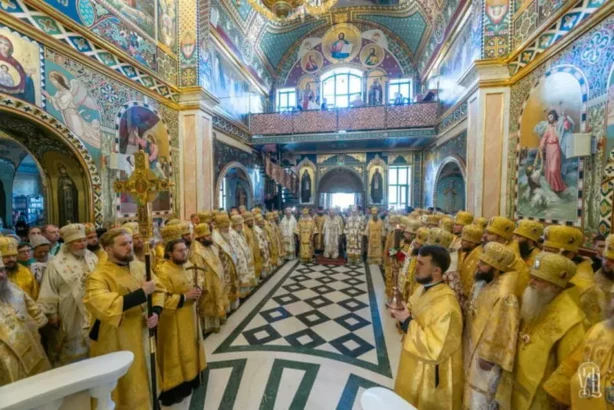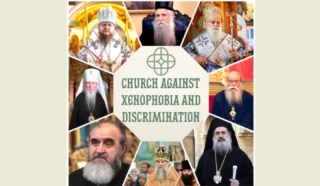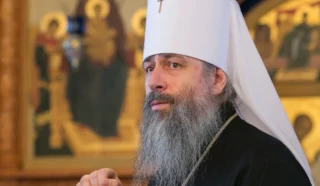The events taking place around the Ukrainian Orthodox Church are increasingly reminiscent of the policy of individual states towards African Americans in the 30-60s of the last century. The entire political vertical of state-church relations is built on the basis of the understanding that if the UOC cannot be destroyed, then it will be necessary to complicate and limit the life of the clergy and believers as much as possible.
And now, in the regions, the processions of the UOC are banned, while in the same regions Greek Catholics freely hold their mass events. There is no point in talking about the expected mass visit of the Hasidim to Uman. The Ministry of Culture has already stated that it is ready to provide them with everything necessary for an unhindered visit to Ukraine. Thus, it turns out that in Ukraine, not only citizens are not equal among themselves, but, even worse, citizens of the state have less rights in it than foreigners.
Nevertheless, an attempt to create the appearance that the UOC is only four percent of the total population regularly fails. The latest photos of crowded celebrations in Lavra and the monasteries of the UOC testify that any ultimatums and threats act on the contrary as an irritant, awakening in believers a sense of responsibility before the Church. This state of affairs motivates the episcopate and clergy of the UOC, strengthening their positions and views on the future of the Church. Separate additionally motivated processes within the UOC, fortunately, did not have the proper result and everything remains in its place.
However, it is worth recalling that the Church is part of the internal policy of the state, and parliamentary elections are predicted in the near future. Naturally, the issue of the UOC will be one of the key issues in terms of the formation of the electorate, depending on preferences. For the believers of the UOC, the issue of the Church is now one of the main ones, and the one who leads the movement to protect the rights of Orthodox citizens will take the percentage of votes needed to enter the Rada in the elections.
At the same time, it is worth remembering that at the moment Ukraine is a classic oligarchic state. And even despite the appearance of the struggle of the authorities with this phenomenon, the oligarchs feel very comfortable. And, whether you like it or not, the issue of the UOC is also in the sphere of interests of people who like to remain in the shadows and manage the state without attracting attention.
Following the trends, several people will try to get into the sphere of future electoral preferences of the supporters of the UOC: Dmitry Razumkov, Oleksandr Usyk, Aleksey Arestovich and others. Perhaps many do not notice this, but it is this “trinity” that is most preferable for believers of the UOC, who do not really delve into political processes. Most likely, they will become the core of some political force that will position itself “for all that is good and against all that is bad.” All three are associated with the Renat Akhmetov, whose partner remains Vadim Novinsky. For those who are interested in the question, it will not be difficult to put these puzzles together in order to understand what and how.
At the same time, it is extremely important for us to understand several points. First, we can’t get away from them. To some, as of now, it may seem that believers will not fall for the next “peacekeepers”, but, in the end, it is the UOC that will give this political force the necessary number of votes. The second is what, as a result, this political force will offer the Ukrainian Orthodox Church. Oddly enough, but work in this direction is underway right now. An imperceptible thread stretches some narratives and thoughts that are barely visible to the experienced eye and absolutely invisible to potential voters.
Recently, a comment by Aleksey Arestovich appeared on the network about how he sees a way out of the current crisis between the UOC and the state. The politician calls for a big discussion of the issue, the result of which should be a kind of pact between the state and the Church, in which the rights and obligations of both parties will be described and mutually approved.
In civilized countries, this phenomenon is called “concordat” and is implemented in the format of a document regulating the relations of the RCC with the countries in whose territory it operates. Most likely, it is this model that the future elected believers of the UOC will try to promote.
However, the complexity of this proposal lies in the fact that in Ukraine there is still a Constitution, which is the main law, and in it citizens are guaranteed freedom of conscience and religion. The difference between the UOC and the RCC in this case is that the RCC in any state is a kind of subsidiary or, if you like, a branch of the Vatican. The UOC is the Church of Ukraine and its existence and activities should be regulated by the Constitution, and not by some agreements that will definitely not be in favor of the Church.
Why is it important to pay attention to this issue? The fact is that the global trend of relations between the state and the Church demonstrates continuous deterioration and restrictions. They want to erase the name of God from the memory of peoples, legally forbid or cancel holidays, limit people’s participation in the Sacraments and Divine Services. The same is happening with the UOC in Ukraine. No one needs the Church as a cohesive public institution, because its supporters think in apolitical, and therefore unfavorable categories for the state. Despite attempts to promote a “civilized” way of life, the religiosity of Ukrainians is still at a high level and it is mostly Orthodox. Consequently, Orthodoxy will be treated according to the principle – divide and rule. For some, they have already created a “flycatcher” in the form of an OCU, and for others, under the guise of a Trojan horse, they will present a “pact” in which they will describe all the moments, so that later it could be said “we agreed.”
Thus, the political agenda regarding the Church is divided today into several scenarios. According to the first – the Church is banned and repressed in every possible way. Supporters of Poroshenko and Zelensky adhere to this. According to the second – a long game, with good and bad policemen, contracts and other “Danaan gifts”, as a result of which the UOC is going to be driven into the ghetto, limiting its activities and existence, following the example of the reserves of the indigenous peoples of North America.
One way or another, the upcoming political season will attract not only those who are “in the know”, but also those who were apolitical before, and, being inexperienced in these matters, risk falling into another trap.





1 Comment. Leave new
Ну а что делать-то? В результате опять будет выбор из двух зол. И неудивительно, что будем выбирать меньшее, хоть и зло. Можно, конечно вообще не выбирать, но тогда выберут за нас.
И где здесь выход, я не знаю. 🙁